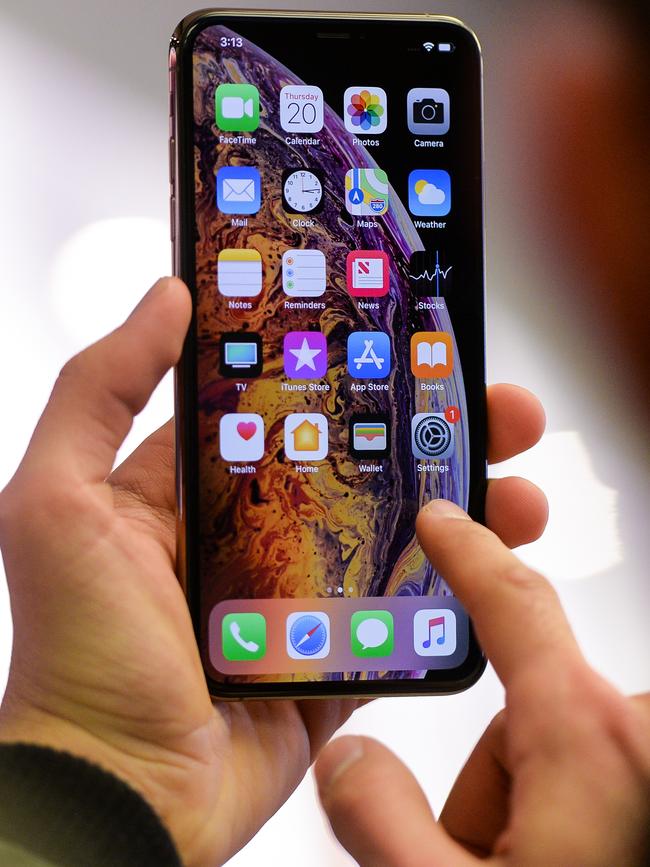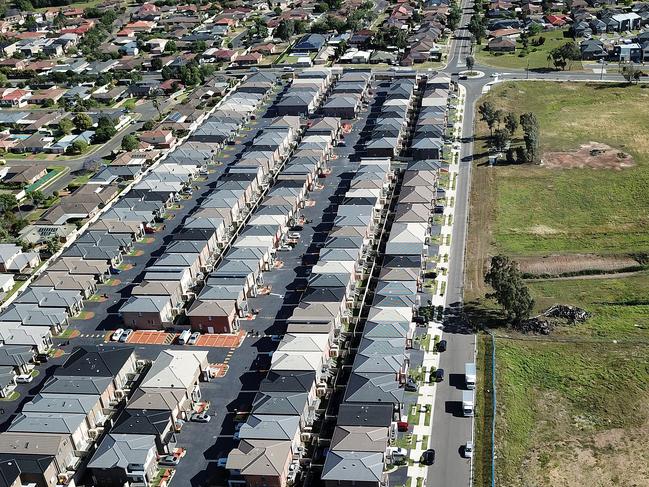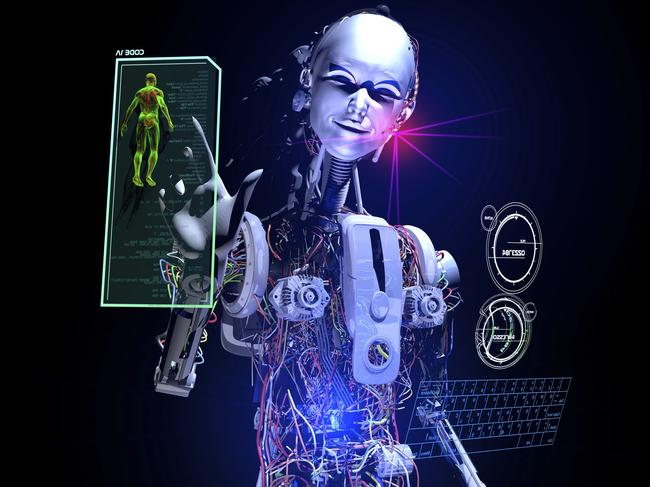Future predictions: What living in Australia will be like in 2040
Jasper Millar was born on New Year’s Day, 2020 and will live his life in a world some of us won’t recognise in 20 years’ time. Life in 2040 will be vastly different to the way it is today and here are some expert predictions about how exactly things will change.
NSW
Don't miss out on the headlines from NSW. Followed categories will be added to My News.
- City of the future: What Sydney will look like in 2040
- Sky is the limit for Badgerys Creek aerotropolis
When Jasper Millar turns 20 he probably won’t have a car or own a passport, will hardly ever handle cash and never use a search engine but he will be on course to live to 120.
It’s only 20 years away but life in 2040 will be vastly different to the way it is today.
Jasper was born at 7.35am on New Year’s Day to Laurel Grey and Zach Millar at Northern Beaches Hospital and his parents already know he will live in a rapidly changing world.

“Our hope for Jasper is that, by 2040, the world will have come back to the middle and things will not be so extreme in terms of thinking and politics,” Ms Grey said.
“And on a personal note, we hope he has lots of choice when it comes to education, where he will live and travel.”
But what will life be like for Australia’s young adults in 2040? Will people still drive cars or will drones shuttle them around? And will Jasper’s house cope with the challenges of a “hotter, wilder climate”?
RELATED NEWS:
Penrith to rival Parramatta as Sydney’s second CBD
Apartment living: A place to work, live and play
But it won’t happen overnight. Just as the past 20 years has seen a mass of change brought on by technology in small, incremental waves, the next 20 will be the same.
“Most of these changes we speak about will be evolutionary,” global business futurist Morris Miselowski said.
“We are starting to see a lot of change starting to happen now. For instance when I say we won’t have passports it sounds strange but already so many interactions at the airport happen through face-recognition, rather than a passport with a possibly dated photograph.”
YOU’LL HAVE A DIGITAL TWIN
Miselowski said one of the biggest changes we will see is the development of the digital twin.
Where these days we turn to Google for information, in 20 years your digital twin will know everything there is about you — where you go, what you like to eat, if you’re feeling sick — and act on that information as needed.

“I’m not suggesting everyone will be walking around with a hologram,” Miselowski said.
“But in 2040 it will be absolutely common to have a digital representation of ourself and, if you think about it, we are already on that path.
“Siri or your smart phone is almost like a digital twin because it knows so much about you.
“Kids will be born into a world where they have one of these digital twins, it will be ordinary to them. They will never know a search engine, because they’ll have this instead.”
KPMG partner Piers Hogarth-Scott speaks of a similar development by 2040, though he calls it a shadow brain, an expanded version of a home-based artificial intelligence product like Google Home.
“It’s not much of a stretch to imagine in 20 years’ time a much more personalised and individual technology that can appear to do more thinking for you,” he said.
SAY GOODBYE TO DRIVING
Hogarth-Scott said children born today will also be less likely to own a car and the rise of the shared vehicle will be mainstream.
“People will also not be allowed to drive on freeways because they will be too unreliable to be behind the wheel when autonomous vehicles are driving at great speeds and close to each other. Most car accidents happen due to human error,” he said.

If your idea of the future includes flying cars, Brendan Gleeson of Melbourne University’s Sustainable Society Institute says you’re half right.
“(By 2040) cars will be fewer in number; small, driverless and lightweight,” he said.
“Much road space will have been reclaimed for parkland, green uses, like food production and water capture and even the built environment and housing.
“There will be no flying cars but lots of drone-like machines of many shapes and sizes including some carrying small numbers of human occupants. These drones will do much of the work of delivering freight and other necessities and will also be used by law enforcement and for surveillance.”
YOUR HOME WORKS FOR YOU
Buildings of our future will be designed to contend with a “hotter, wilder climate”. The skyscrapers that will dominate our skyline will have a greener function.
“Many (buildings) will be ‘reskinned’ in a special surfacing or covering that is solar absorptive and which is used to generate clean power,” he said.
“The green roofs will include food production, which will give a very distinctive feel to these new cities.”

KPMG customer brand and marketing adviser Amanda Hicks said bigger changes will be within the house.
“In the future you’ll be able to talk to your fridge and send a shopping list directly through to the supermarket; your house will be able to order your taxi,” she said.
Hicks said this will have a ripple effect of almost completely eliminating the need for cash and cards in favour of face recognition technology to pay for goods.
“(Voice activation) will definitely change language,” she said.
“With voice activation, communication will have to be simple for all languages and global in how it operates.
“We might end up with a slightly more universal language, a bit like we have with emoticons now that have transcended language.”

YOU’LL LOVE YOUR ROBOT
Miselowski predicts this communication and interaction will encourage a greater emotional attachment to devices, or robots.
In a series he recently published called “By 2040’ish: 40 predictions” he posed some interesting statements. Number 12 states: “Humans care deeply for robots.”
“When someone does something for me, as a human I become attached to it,” he explained. “People love their cars, for instance in a way that’s not intimate, but emotional.
“Most of our (voice-enabled) interactions are already polite, we say ‘please’ and ‘thank you’ to a silly little speaker in the corner of the room. So, if you can imagine your digital twin, how could you not attach human emotions to it?”
Originally published as Future predictions: What living in Australia will be like in 2040

